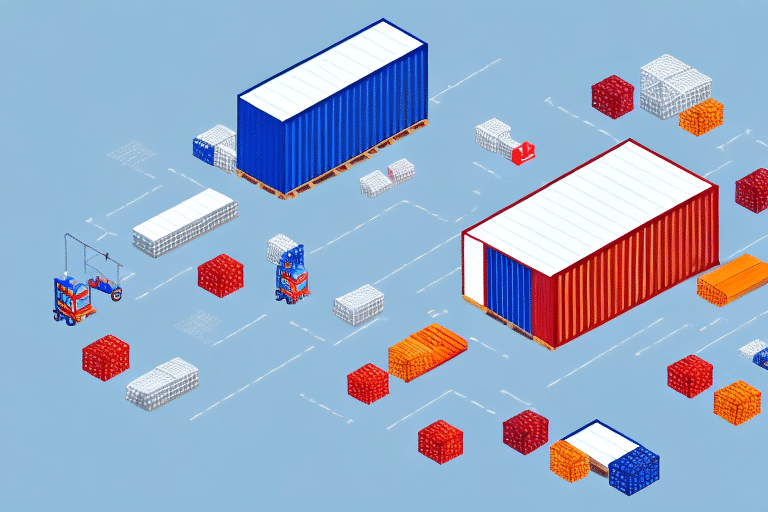Understanding the Importance of Logistics Cost Reduction
Reducing logistics costs is essential for enhancing the profitability and sustainability of any business. Efficient logistics operations ensure timely delivery of goods, improve customer satisfaction, and provide a competitive edge in the market. According to the Statista report, global logistics costs account for approximately 8% of a company's revenue on average. By identifying and eliminating inefficiencies, businesses can significantly lower their expenses and improve their bottom line.
Identifying Key Areas for Cost Reduction
The first step in logistics cost reduction is identifying the primary areas where costs are incurred. These typically include transportation, inventory management, warehousing, and order processing. Conducting a comprehensive audit of these areas helps in pinpointing inefficiencies and opportunities for savings.
Transportation
Transportation costs often constitute the largest portion of logistics expenses. Optimizing delivery routes, consolidating shipments, and negotiating better rates with carriers can lead to substantial savings.
Inventory Management
Excess inventory ties up capital and increases storage costs. Implementing just-in-time (JIT) inventory systems and improving demand forecasting can help in maintaining optimal inventory levels.
Warehousing
Efficient warehouse operations reduce handling costs and improve order accuracy. Strategies such as warehouse layout optimization and automation can enhance efficiency.
Optimizing Transportation and Route Planning
Effective transportation management is crucial for minimizing costs and ensuring timely deliveries. Utilizing advanced route planning software and GPS technology can optimize delivery schedules and routes.
Route Optimization
By analyzing traffic patterns and delivery schedules, businesses can identify the most efficient routes, reducing fuel consumption and vehicle wear and tear.
Shipment Consolidation
Combining multiple shipments into a single delivery reduces the number of trips required, leading to lower transportation costs and decreased carbon emissions.
Carrier Negotiations
Establishing long-term relationships with carriers and negotiating volume discounts can result in significant cost savings over time.
Enhancing Inventory and Warehouse Management
Optimizing inventory and warehouse operations can lead to reduced storage costs and improved order fulfillment rates. Implementing advanced inventory management systems and lean warehouse practices are effective strategies.
Just-In-Time (JIT) Inventory
JIT inventory systems ensure that goods are ordered and received exactly when needed, minimizing excess inventory and reducing storage costs.
Warehouse Management Systems (WMS)
Implementing a robust WMS enhances inventory accuracy, streamlines order processing, and improves overall warehouse efficiency. Learn more about the benefits of a warehouse management system.
Lean Warehouse Practices
Adopting lean principles in warehouse operations eliminates waste, optimizes space utilization, and enhances workflow efficiency.
Leveraging Technology and Data Analytics
Integrating technology and utilizing data analytics are pivotal in modern logistics cost reduction strategies. Advanced technologies provide real-time visibility and actionable insights.
RFID Technology
Radio Frequency Identification (RFID) enables real-time tracking of inventory, improving accuracy and reducing the likelihood of stockouts or overstocking.
Data-Driven Decision Making
Analyzing historical sales data and current logistics metrics allows businesses to forecast demand accurately and adjust their logistics strategies accordingly.
Automation and AI
Automating repetitive tasks and leveraging artificial intelligence can streamline operations, reduce errors, and enhance efficiency across the supply chain.
Building Strong Supply Chain Partnerships
Collaborating with suppliers and carriers fosters strong relationships that can lead to cost savings and improved service levels. Effective partnerships enhance reliability and flexibility within the supply chain.
Supplier Collaboration
Working closely with suppliers to align production schedules and inventory levels can reduce lead times and minimize inventory holding costs.
Carrier Partnerships
Establishing long-term partnerships with reliable carriers ensures better rates, priority service, and consistent performance.
Information Sharing
Transparent communication and information sharing between supply chain partners enhance coordination and facilitate proactive problem-solving.
Measuring and Tracking Logistics Cost Savings
To ensure the effectiveness of cost reduction strategies, it is essential to measure and track logistics expenses continually. Establishing key performance indicators (KPIs) and utilizing monitoring tools provide insights into progress and areas needing improvement.
Key Performance Indicators (KPIs)
Common logistics KPIs include transportation costs per unit, inventory turnover rates, order accuracy, and delivery times. Monitoring these metrics helps in assessing the impact of cost reduction initiatives.
Continuous Improvement
Regularly reviewing and analyzing logistics performance data enables businesses to identify trends, address inefficiencies, and implement continuous improvement measures.
Reporting and Analysis
Comprehensive reporting tools facilitate the visualization of logistics data, making it easier to track progress and make informed decisions based on accurate analysis.
Overcoming Challenges in Implementing Cost Reduction Strategies
Implementing logistics cost reduction strategies can present several challenges, including resistance to change, limited resources, and technological barriers. Addressing these challenges proactively is crucial for successful implementation.
Change Management
Effective change management involves clear communication, training, and involving employees in the process to mitigate resistance and ensure smooth transitions.
Resource Allocation
Allocating adequate resources, including budget and personnel, is essential for the successful execution of cost reduction initiatives.
Adopting New Technologies
Embracing new technologies requires investment and training. Ensuring that the workforce is equipped to utilize these technologies effectively is key to maximizing their benefits.
Case Studies: Real-World Examples of Successful Logistics Cost Reduction
Examining real-world case studies provides valuable insights into effective logistics cost reduction strategies. These examples illustrate how businesses have successfully implemented various approaches to achieve significant savings and operational improvements.
Case Study 1: Global Retailer
A leading global retailer optimized their transportation routes using advanced route planning software, resulting in a 15% reduction in fuel costs and a 10% decrease in delivery times.
Case Study 2: Manufacturing Firm
A manufacturing company implemented a just-in-time inventory system, which reduced excess inventory by 20% and lowered storage costs by 25%.
Case Study 3: E-commerce Company
An e-commerce business adopted a warehouse management system (WMS) that increased order accuracy by 30% and improved warehouse throughput by 40%.
Conclusion
Reducing logistics costs is vital for enhancing business profitability and maintaining a competitive edge. By identifying key areas for cost savings, optimizing transportation and inventory management, leveraging technology, building strong partnerships, and continuously measuring performance, businesses can achieve significant cost reductions while improving service levels and operational efficiency.






















